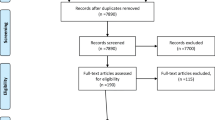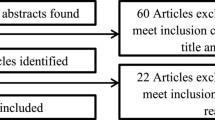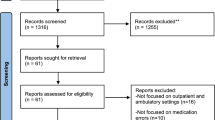Abstract
OBJECTIVE: To examine primary care physicians’ perceptions of how disease management programs affect their practices, their relationships with their patients, and overall patient care.
DESIGN: Cross-sectional mailed survey.
SETTING: The 13 largest urban counties in California.
PARTICIPANTS: General internists, general pediatricians, and family physicians.
MEASUREMENTS AND MAIN RESULTS: Physicians’ self-report of the effects of disease management programs on quality of patient care and their own practices. Respondents included 538 (76%) of 708 physicians: 183 (34%) internists, 199 (38%) family practitioners, and 156 (29%) pediatricians. Disease management programs were available to 285 (53%) physicians; 178 had direct experience with the programs. Three quarters of the 178 physicians believed that disease management programs increased the overall quality of patient care and the quality of care for the targeted disease. Eighty-seven percent continued to provide primary care for their patients in these programs, and 70% reported participating in major patient care decisions. Ninety-one percent reported that the programs had no effect on their income, decreased (38%) or had no effect (48%) on their workload, and increased (48%) their practice satisfaction.
CONCLUSIONS: Practicing primary care physicians have generally favorable perceptions of the effect of voluntary, primary care-inclusive, disease management programs on their patients and on their own practice satisfaction.
Similar content being viewed by others
References
Bodenheimer T. Disease management—promises and pitfalls. N Engl J Med. 1999;340:1202–5.
Rich MW, Beckham V, Wittenberg C, Leven CL, Freedland KE, Carney RM. A multidisciplinary intervention to prevent the read-mission of elderly patients with congestive heart failure. N Engl J Med. 1995;333:1190–5.
Wagner EH, Austin BT, Von Korff M. Organizing care for patients with chronic illness. Milbank Q. 1996;74:511–44.
Ellrodt G, Cook DJ, Lee J, Cho M, Hunt D, Weingarten S. Evidence-based disease management. JAMA. 1997;278:1687–92.
Wagner EH, Davis C, Schaefer J, Von Korff M, Austin B. A survey of leading chronic disease management programs: are they consistent with the literature? Manag Care Q. 1999;7:56–66.
Lorig KR, Sobel DS, Stewart AL, et al. Evidence suggesting that a chronic disease self-management program can improve health status while reducing hospitalization: a randomized trial. Med Care. 1999;37:5–14.
Greenhalgh T, Herxheimer A, Isaacs AJ, Beaman M, Morris J, Farrow S. Commercial partnerships in chronic disease management: proceeding with caution [see comments]. BMJ. 2000;320:566–8.
Kennerly D. Asthma disease management: friend or foe? Allergy Asthma Proc. 1999;20:293–8.
Mason A, Drummond M, Towse A. Is disease management relevant in Europe: some evidence from the United Kingdom. Health Policy. 1999;48:69–77.
Burns H. Disease management and the drug industry: carve out or carve up? Lancet. 1996;347:1021–3.
Harris JM Jr. Disease management: new wine in new bottles? [comment]. Ann Intern Med. 1996;124:838–42.
Bodenheimer T, Lo B, Casalino L. Primary care physicians should be coordinators, not gatekeepers. JAMA. 1999;281:2045–9.
Bindman AB, Grumbach K, Vranizan K, Jaffe D, Osmond D. Selection and exclusion of primary care physicians by managed care organizations. JAMA. 1998;279:675–9.
Grumbach K, Osmond D, Vranizan K, Jaffe D, Bindman AB. Primary care physicians’ experience of financial incentives in managed-care systems. N Engl J Med. 1998;339:1516–21.
St. Peter RF, Reed MC, Kemper P, Blumenthal D. Changes in the scope of care provided by primary care physicians. N Engl J Med. 1999;341:1980–5.
Author information
Authors and Affiliations
Corresponding author
Additional information
The study was also supported by the Agency for Health Care Policy and Research grant #R03HS09557-01 and by the Bureau of Health Professions, HRSA grant # 5U76MB10001.
Rights and permissions
About this article
Cite this article
Fernandez, A., Grumbach, K., Vranizan, K. et al. Primary care physicians’ experience with disease management programs. J GEN INTERN MED 16, 163–167 (2001). https://doi.org/10.1111/j.1525-1497.2001.91226.x
Issue Date:
DOI: https://doi.org/10.1111/j.1525-1497.2001.91226.x




